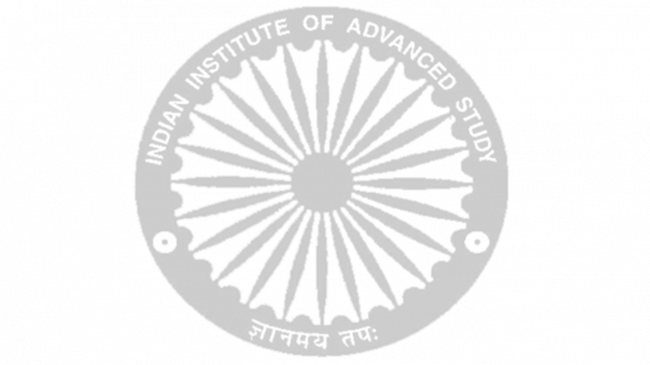Indian Institute of Advanced Study (IIAS)

Because of the common vision of President S. Radhakrishnan the remarkable philosopher-statesman-and Prime Minister Pandit Jawaharlal Nehru, the Indian Institute of Advanced Study Society was registered on 6 October 1964 under the Registration of Societies Act of 1860. Exactly fifty-four weeks later, the Institute was formally inaugurated by President Radhakrishnan himself.
The Memorandum of Association of the Institute Society was amended in 1984, on the basis of the recommendations of the Kripalani Committee. The Institute was to remain a residential centre for 'free and creative inquiry into fundamental themes and problems of life and thought'.  Its primary objective was defined as the promotion of 'creative thought in areas which have deep human significance'.
Its primary objective was defined as the promotion of 'creative thought in areas which have deep human significance'.
Fellowships
Today, the Institute has National Fellows and Fellows. The term of National Fellows at the Institute is for a maximum period of two years. For Fellows, the backbone of the Institute, the duration of regular Fellowships ranges from a minimum of six months to a maximum of two years. This depends on the nature of work and its progress. Initially, a Fellowship is awarded for a year.
While Fellows of the Institute are primarily engaged in their own research on themes approved by the Institute, the considerable formal and informal interaction amongst them encourages a healthy interdisciplinary dialogue. From April to November, the Fellows' weekly seminar is the primary forum for formal interaction. During their term, Fellows remain in residence from April to November. In winter - December to March - they may engage in field work, library and archival consultations outside Shimla. Upon the completion of their term, Fellows are required to submit their completed research work in the form of a monograph to the Institute. The monographs submitted by them are considered for publication by the Institute - which also retains the first right of publication. 
Apart from Fellows, other scholars also contribute to, and benefit from, the Institute. They come as Visiting Professors, Visiting Scholars and Guest Scholars. Visiting Professors are eminent scholars invited by the Governing Body of the Institute to deliver lectures and give seminars at the Institute. During an in-residence stay of up to four weeks, they also interact informally with Fellows of the Institute. Similarly, Visiting Scholars also come to the Institute on invitation. Like Visiting Professors, they too are distinguished in their respective fields, but their stay is limited to a week and all facilities of the Institute are extended to them. Guest Scholars visit the Institute - subject to the availability of accommodation; they too are welcome to utilize the facilities on a nominal payment.
Fellowships to the Institute are widely advertised throughout the country and also through the website of the Institute. The selection is made through various committees set up by the Governing Body. These committees consist of experts in different areas of research and they assist the Director in determining the academic merit of scholars and their projects. There is a multiplicity of approaches in the selection of Fellows - and is not necessarily confined to those who respond to advertisements. It is open to the Institute to consider the names of eminent scholars suggested by the Director, members of Governing Body and the Society. Talent is also identified through efforts on a regional and sub-regional basis. The final decision for the award of Fellowships is taken by the Governing Body of the Institute. This is done on the recommendation of a selection committee under the Chairmanship of the Director.